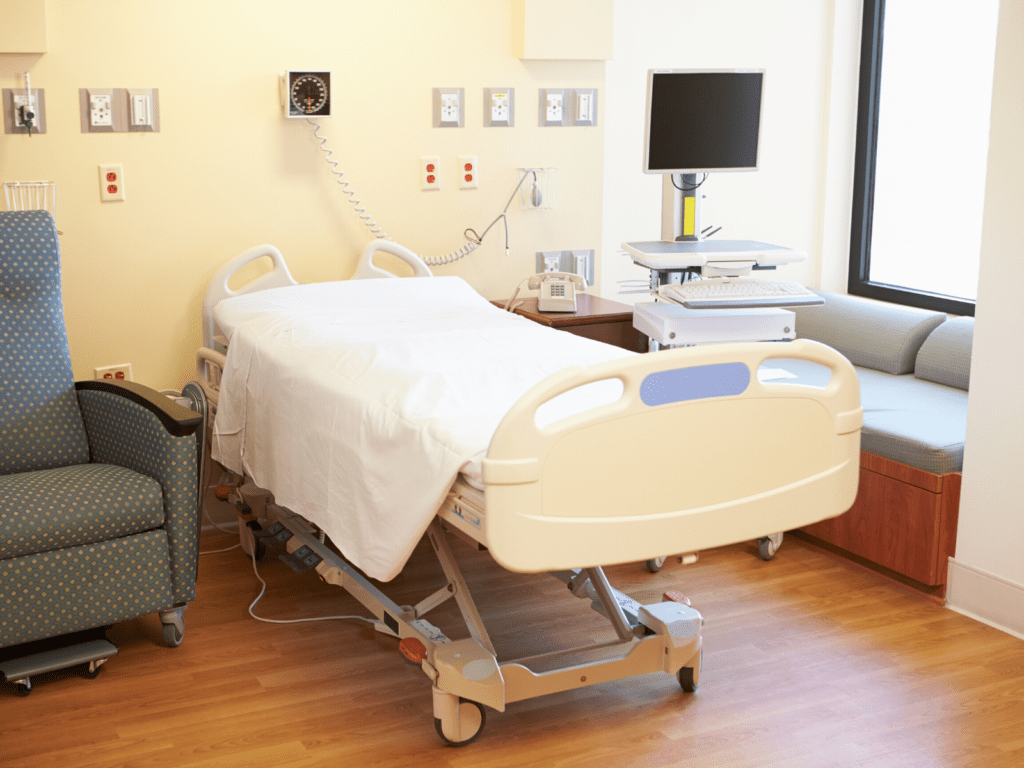
The lists have been made.
The rooms are ready.
We pray they will not be needed.
The news is filled with concern over the shortage of ventilators, ICU beds, and hospital capacity.
As the number of cases and deaths from COVID-19 continued rising, we prepared to deal with this in our area by ensuring our sleep center to be a surge ICU if needed. Social distancing and limiting nonemergency medical services meant our sleep centers have been closed. It made sense to us to repurpose them for more urgent needs during the pandemic.
The rooms used in the sleep center have limitations. Still, these rooms are equipped with advanced physiologic monitoring capabilities and an array of support equipment. The rooms are large and can accommodate additional equipment for treatment. We do not, however, have negative pressure rooms. We are not designed for managing highly infectious patients, and we won’t be treating people with COVID-19 here. We can, however, provide a good option for providing critical care to people who are not infected. This will be necessary if all beds in the ICU are needed for people with COVID-19, which, unfortunately, is not an unlikely scenario. Our equipment can also be leveraged to add ICU, step down ICU, or standard floor capacity.
Even before the first COVID-19 admission, we took steps to convert the sleep center to a surge ICU if needed. Without using hospital resources that were being dedicated to other preparations or patient care, we reprogrammed our monitoring equipment to replicate what is typically found in the ICU. In many respects, there are substantially superior monitoring capabilities for respiratory effort monitoring in the sleep center.
The next step was to assess the treatment capabilities and needs to upgrade the center into a fully functional ICU. Converting the rooms would require little more than IV pumps and general sterile supplies.
We have readied the rooms and prepared the checklists to do what is needed.
This preparation and the COVID-19 pandemic have laid bare the need to intelligently and carefully transform health care delivery. The risks faced by smaller hospitals, like ours outside Tuscaloosa, Alabama, echo those faced in larger urban centers. In fact, the risks may be far greater since rural hospitals have fewer resources. Even a small number of COVID-19 cases could easily overwhelm the system.
It is imperative that we involve the front lines—the doctors, nurses, technologists, and other health care workers—in this transformation. Changes instituted by bureaucratic agencies, governmental or institutional, are not likely to achieve meaningful positive change without the guidance of those delivering the care.
Many have called health care workers heroes in recent days. There are heroes in medicine, just as in many other occupations—from truckers and warehouse workers to firefighters and police officers—and there always have been. The gratitude is appreciated. But the truth is that we are just continuing to do our jobs. What we really need is to be recognized as the people who faced the problems head on and therefore are the most likely to find solutions.
Health care workers will also be the ones to institute, refine, and customize any improvements in health care we as a society try to make. The present crisis is exposing some of the many deficiencies in our system and the need to fix it. Let’s make sure it also exposes the importance of involving the front-line stakeholders in those solutions.
Read more about how we are Coping with COVID-19 and using Rural Medicine to Lead the Way.
Follow us on Twitter, Facebook, and LinkedIn to join the conversation about growing your practice.



정관출장안마
Sleep Center Prepared To Be A Surge ICU During The COVID-19 Crisis If Needed | SBGM